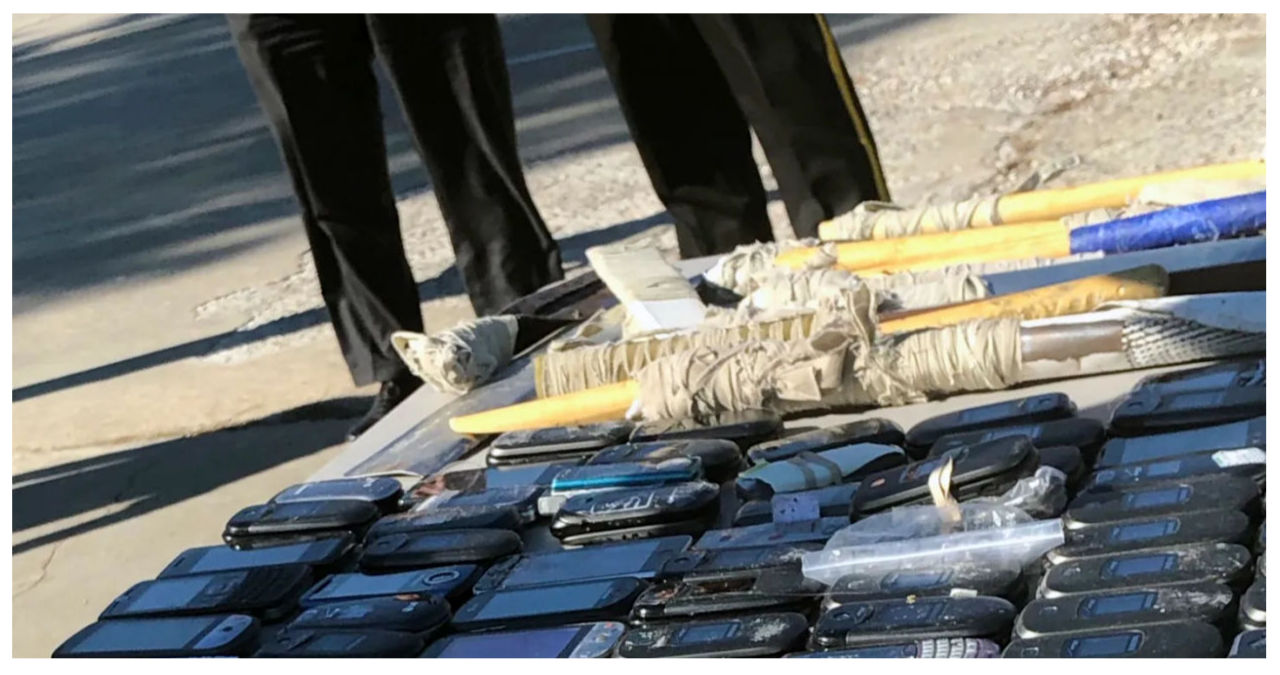According to federal prosecutors, a supervisor responsible for security at a prison in South Carolina has been implicated in accepting over $219,000 in bribes over a span of three years. Additionally, it has been revealed that the said supervisor managed to procure 173 contraband cellphones for inmates.
Christine Mary Livingston, a 46-year-old individual, recently faced an indictment on multiple charges. These charges include bribery, conspiracy, wire fraud, and money laundering.
Livingston dedicated 16 years of her career to serving the South Carolina Department of Corrections. In 2016, she achieved an impressive milestone by being promoted to the position of captain at Broad River Correctional Institution. This promotion entrusted her with the crucial responsibility of overseeing security at the medium-security prison located in Columbia.
Livingston collaborated with inmate Jerell Reaves, aged 33, to engage in the acceptance of bribes in exchange for cellphones and other illicit accessories. The duo would leverage the smart phone Cash App money transfer program to obtain $1,000 to $7,000 for a single phone, as revealed by the recently unsealed federal indictment.
Reaves went by the nickname Hell Rell, while Livingston was referred to as Hell Rell’s Queen, according to federal prosecutors.
If they are convicted, both individuals could face up to 20 years in prison, as well as a hefty $250,000 fine. Additionally, they may be required to repay the money they obtained illegally.
In 2015, Reaves was convicted of voluntary manslaughter for shooting a man at a Marion County convenience store. As a result, he is currently serving a 15-year prison sentence.
The emails sent on Friday were not responded to by lawyers representing Livingston and Reaves.
Contraband cellphones have been a persistent issue in South Carolina prisons. Inmates have utilized these devices to carry out various illegal activities, ranging from operating drug rings and engaging in fraud schemes to orchestrating murders while incarcerated. Bryan Stirling, the Corrections Director, has expressed concerns regarding the extent of the problem.
The use of cellphones fueled a riot at Lee Correctional Institution in 2018, resulting in the tragic death of seven inmates.
South Carolina authorities expressed their firm stance against the breach of public trust by a particular woman. This individual’s actions have compromised the safety of inmates, staff, and the community within the state’s prisons. Bryan P. Stirling, a representative, emphasized their zero-tolerance policy towards any officers or employees involved in smuggling contraband into correctional facilities. Stirling further expressed satisfaction with the individual being held accountable for her actions.
The South Carolina prison system has been requesting permission from federal officials to implement cell phone signal jamming in prisons, but they have not yet been granted approval.
In January, Stirling shared a video of an inmate who was feeling frustrated because his phone had stopped working. The inmate called a tech support hotline and asked the worker for help in getting his phone turned back on. However, he was informed that he needed to contact the Corrections Department hotline instead.
Between July 2022 and June 2023, state prison officials discovered 2,179 violations of inmates possessing prohibited communication devices. Over the past six years, a staggering number of 35,000 cellphones have been confiscated within the prison system, which houses approximately 16,000 inmates.
Stirling has been advocating for the General Assembly to pass a dedicated bill that explicitly prohibits the possession of cellphones within prisons. He believes that treating cellphones as a separate category of contraband and imposing additional penalties, such as extending the sentence by up to a year for the first offense and up to five years for a subsequent offense, would be more effective in deterring their use.
The bill remains stuck in the Senate Judiciary Committee and has yet to advance.

